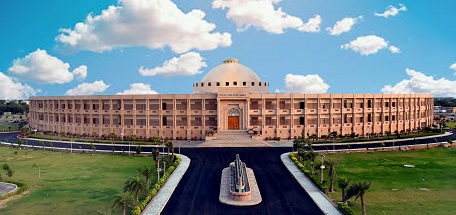The Rajasthan High Court stated that if a contractual term weakens the arbitration clause, it will be interpreted to fully support the arbitration agreement.

The Rajasthan High Court emphasized that if there is any contract term that weakens the arbitration clause, it will be interpreted in a way that fully supports the arbitration agreement. The Applicant submitted an arbitration request under Section 11 (5) of the Arbitration and Conciliation Act, 1996, seeking the appointment of a sole arbitrator to settle a dispute related to a bid for a Rate Contract Cum Supply and Empanelment of Drugs and Medicines. Justice Sudesh Bansal, on the Single-Judge Bench, stated that the High Court, acting as a referral Court under Section 11 of the A&C Act, 1996, has limited authority as outlined in Section 11 (6A) of the A&C Act, 1996.
Advocate Tarun Kumar Mishra represented the Petitioner, while Advocate Satya Narayan Gupta represented the Respondents. The applicant, a private limited company, was chosen as the successful bidder by the Rajasthan Medical Services Corporation for the manufacturing and supply of empaneled drugs and medicines. A dispute arose over a purchase order for certain Ear Drops and suspension. The applicant claimed significant damages and losses due to the cancellation of the purchase order by the respondents, which occurred without a show cause notice and after a considerable time had passed. The applicant initially sent an email to the respondents and later issued a legal notice demanding the collection of the manufactured drugs and payment of Rs.33,26,904. The applicant warned that if payment was not made, they would pursue legal action through arbitration.
The applicant argued that Clause 22 (2) of the Contract/NIB, which became part of the agreement after the bid was accepted, includes an arbitration clause for the applicant. However, it lacks a process for appointing an Arbitrator. As a result, the Company filed an arbitration application with the High Court to appoint an independent and neutral Arbitrator to settle the dispute. The respondents raised a legal objection, claiming that the arbitration clause in Clause 22 (2) does not fulfill the necessary requirements of an arbitration agreement. Specifically, it does not state that the Arbitrator’s decision will be final and binding on the parties, which is a key feature of such agreements.
Citing judgments from Jagdish Chander Vs. Ramesh Chander & Ors, K. K. Modi Vs. K N Modi, Bharat Bhushan Bansal Vs. U.P. Small Industries Corporation, and State Of Orissa & Anr. Vs. Damodar Das, the Bench noted that it is a well-established legal principle that if any contractual terms between the parties weaken the arbitration clause, those terms should be interpreted in a way that upholds the arbitration agreement.
The Bench noted that Clause 22 (2) of the NIB clearly shows that the parties intended to resolve their dispute through arbitration. It also pointed out that this clause does not state that the Arbitrator’s decision is final or binding. Therefore, based on the principles from the mentioned Supreme Court judgments, the Court supports the applicant company’s request to send the dispute to arbitration rather than dismissing the application due to the absence of essential elements in Clause 22 (2).
Reliance was placed on Section 16 of the A&C Act, 1996, which allows the arbitral tribunal to decide on its own jurisdiction. It was noted that respondents can raise objections regarding the validity of the arbitration agreement directly before the tribunal. If such objections are made, the tribunal must address them according to the law, without being swayed by the preliminary opinion of this Court, as that opinion is only initial. The Court also mentioned that the judgment cited by the respondents from the Supreme Court’s Constitutional Bench regarding the relationship between arbitration agreements under the A&C Act and the Indian Stamp Act does not suggest a different legal principle. Instead, it indicates that Section 11 (6A) of the A&C Act should be considered when handling arbitration applications, as this provision remains relevant. Consequently, the Bench approved the arbitration application and appointed Justice Dinesh Chandra Somani (Former Judge) as the sole Arbitrator for both arbitration cases to resolve the dispute between the parties.
Cause Title: M/s Argon Remedies Pvt. Ltd. v. Rajasthan Medical Services Corporation Ltd [Neutral Citation:2024:RJ-JP:49334]
Appearance:
Petitioner: Mr. Tarun Kumar Mishra
Respondents: Mr. Satya Narayan Gupta








